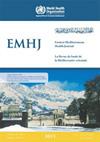改善生活在伊朗伊斯兰共和国的阿富汗母亲的健康状况
IF 1.9
4区 医学
Q3 HEALTH CARE SCIENCES & SERVICES
引用次数: 0
摘要
背景:伊朗伊斯兰共和国的医疗保健系统为母亲提供特殊的孕产妇医疗保健服务,不论其国籍如何。目的:本研究得到了联合国人口基金的支持,旨在审查与生活在伊朗伊斯兰共和国的阿富汗母亲的健康指标相关的现有数据。研究方法这项描述性研究使用的数据来自伊朗卫生和医学教育部孕产妇保健办公室的电子登记系统,内容涉及 2017 年至 2019 年伊朗伊斯兰共和国阿富汗母亲的特征、发病率和死亡率。数据使用 SPSS 23.0 版进行分析。根据结果,我们提出了改善弱势阿富汗母亲医疗服务的干预措施。结果:在 3 年的研究期间(2017-2019 年),共有 168 488 例分娩。阿富汗妇女的分娩率从 2017 年的 3.4% 增加到 2019 年的 5.2%,其中超过 70% 的阿富汗妇女属于弱势人群。10%的阿富汗产妇是由传统接生员接生的。阿富汗母亲的剖腹产率为 30%。在这 3 年中,阿富汗母亲的产妇死亡率为每 10 万人 43 例。结论伊朗伊斯兰共和国的阿富汗籍母亲使用该国为母亲提供的初级保健服务。然而,为这些母亲提供的医疗保健服务虽然被认为比为生活在阿富汗的阿富汗母亲提供的医疗保健服务要好,但仍显不足。我们建议采取有针对性的干预措施,以改善居住在伊朗伊斯兰共和国的阿富汗妇女的健康状况。本文章由计算机程序翻译,如有差异,请以英文原文为准。
Improving the health status of Afghan mothers living in the Islamic Republic of Iran
Background: The healthcare system of the Islamic Republic of Iran provides special maternal health care services for mothers, regardless of their nationality. Aim: This study, supported by the United Nations Population Fund, was conducted to review available data associated with health indicators of Afghan mothers living in Islamic Republic of Iran. Methods: This descriptive study used data from the electronic registration system of the Maternal Health Office of the Ministry of Health and Medical Education on characteristics, morbidity and mortality among Afghan mothers in the Islamic Republic of Iran from 2017 to 2019. The data were analysed using SPSS version 23.0. Based on the results, we propose interventions to improve health services for vulnerable Afghan mothers. Results: There were 168 488 deliveries over the 3 years of the study (2017–2019). Deliveries by Afghan women increased from 3.4% in 2017 to 5.2% in 2019, and more than 70% of these Afghan women were vulnerable. Ten percent of deliveries among Afghan mothers were performed by traditional birth attendants. The rate of caesarean section among Afghan mothers was 30%. Maternal mortality ratio among the Afghan mothers was 43 per 100 000 for the 3 years. Conclusion: Afghan mothers in the Islamic Republic of Iran use primary health care services provided for mothers in the country. However, healthcare delivery to these mothers is inadequate, although considered better than the care provided to Afghan mothers living in Afghanistan. We recommend targeted interventions to improve the health status of Afghan women living in the Islamic Republic of Iran.
求助全文
通过发布文献求助,成功后即可免费获取论文全文。
去求助
来源期刊

Eastern Mediterranean Health Journal
HEALTH CARE SCIENCES & SERVICESPUBLIC, ENV-PUBLIC, ENVIRONMENTAL & OCCUPATIONAL HEALTH
CiteScore
3.30
自引率
4.80%
发文量
112
期刊介绍:
The Eastern Mediterranean Health Journal, established in 1995, is the flagship health periodical of the World Health Organization Regional Office for the Eastern Mediterranean.
The mission of the Journal is to contribute to improving health in the Eastern Mediterranean Region by publishing and publicising quality health research and information with emphasis on public health and the strategic health priorities of the Region. It aims to: further public health knowledge, policy, practice and education; support health policy-makers, researchers and practitioners; and enable health professionals to remain informed of developments in public health.
The EMHJ:
-publishes original peer-reviewed research and reviews in all areas of public health of relevance to the Eastern Mediterranean Region
-encourages, in particular, research related to the regional health priorities, namely: health systems strengthening; emergency preparedness and response; communicable diseases; noncommunicable diseases and mental health; reproductive, maternal, child health and nutrition
-provides up-to-date information on public health developments with special reference to the Region.
The Journal addresses all members of the health profession, health educational institutes, as well as governmental and nongovernmental organizations in the area of public health within and outside the Region.
 求助内容:
求助内容: 应助结果提醒方式:
应助结果提醒方式:


